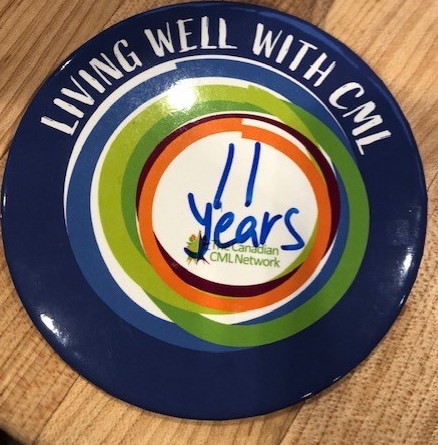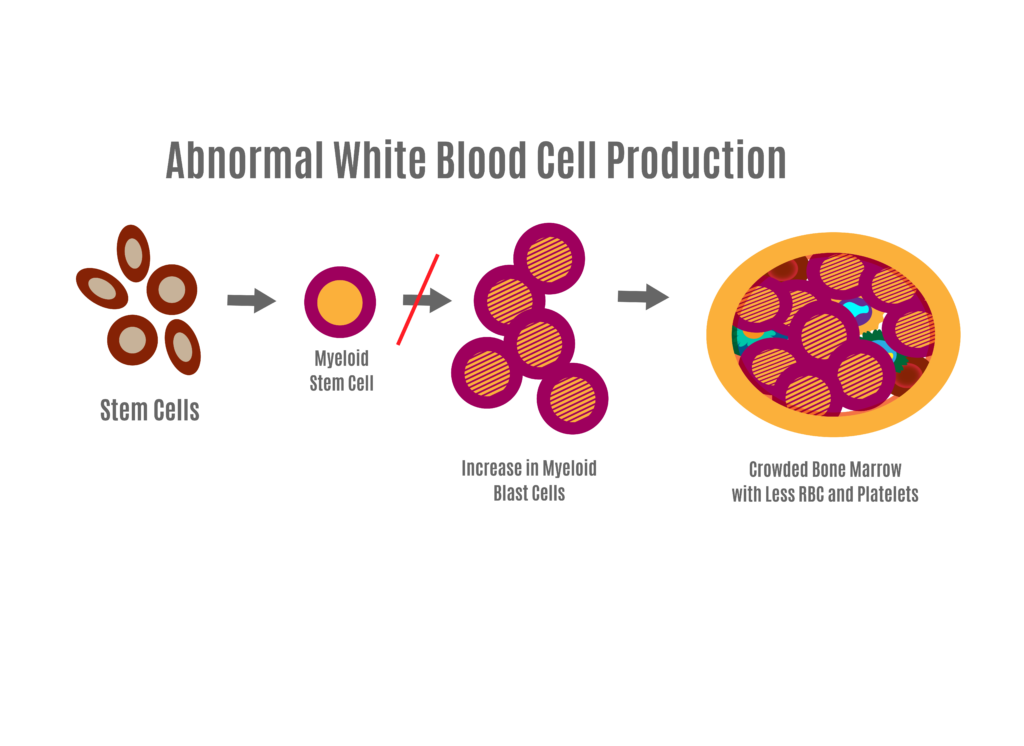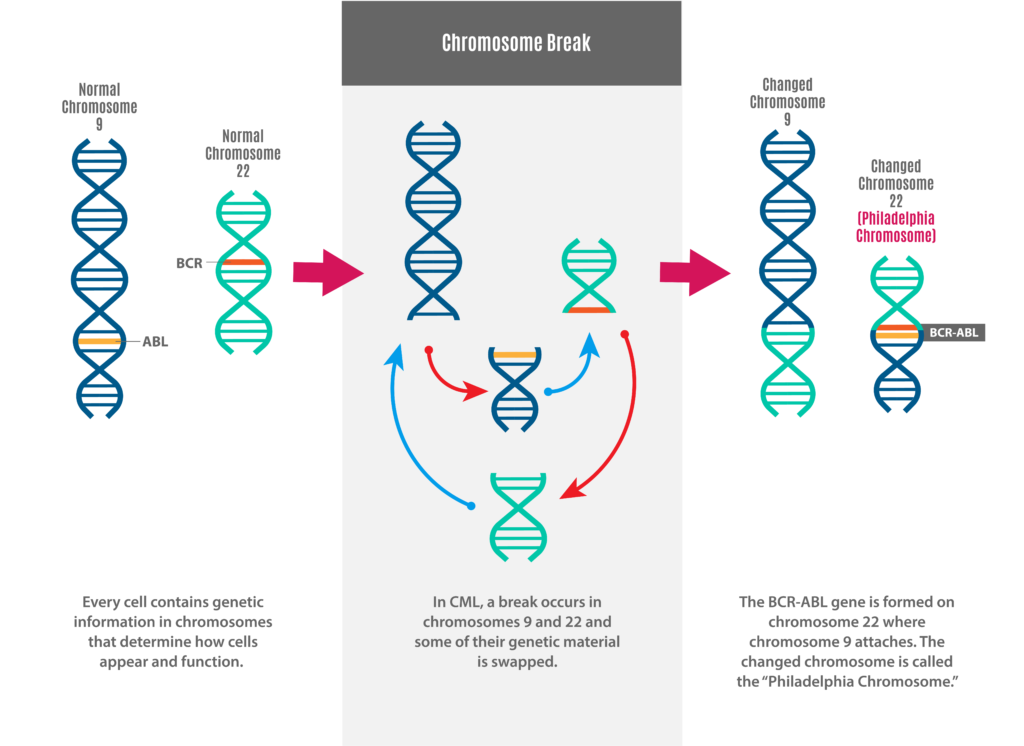
Understanding
CML
What is CML?
CML, short for Chronic Myelogenous Leukemia (also sometimes called Chronic Myeloid Leukemia), is a type of cancer that affects the blood and bone marrow. CML is one of four major types of leukemia. Roughly 500 Canadians are diagnosed with CML each year, usually in middle age or later in life.
In order to understand CML, you should know a bit about how your body makes blood cells. Normally, stem cells in your bone marrow develop into the cells that make up your blood: white blood cells (that help fight infections), red blood cells (that carry oxygen through your body) and platelets (that help blood clotting).

How does it effect the body?
With CML, the normal process of blood cell formation goes wrong.
- Stem cells, which normally develop mature blood cells, become abnormal.
- The abnormal cells produce immature white blood cells in large numbers. They crowd the bone marrow and slow the production of red blood cells and platelets.
- The result is a higher-than-normal number of white blood cells in the bloodstream, and a lower-than-normal number of red blood cells. While many people with CML have a normal platelet count, the number of platelets can also either be elevated or decreased. This creates symptoms such as tiredness or bleeding.

What causes CML?
It is believed that a genetic abnormality causes the blood cell formation problems of CML. 90-95 per cent of people with CML have what is called the Philadelphia chromosome (Ph). This abnormality is created when two normal chromosomes switch some of their genetic material.
The exact trigger that causes this genetic switch is unknown. And five to 10 per cent of people with CML do not have the Philadelphia chromosome at all.
How did I get CML?
There are no proven risk factors for people to develop CML, other than exposure to very high doses of radiation, such as atomic bomb blasts or nuclear reactor accidents.
That said, most people who have CML were never exposed to high-dose radiation. Research has also shown there is no link between X-rays or radiation therapy and developing CML.
There appears to be no genetic component to CML. You cannot inherit it, or pass it on to your children. CML is also not contagious–you cannot catch CML from someone who has it or spread it to someone else.